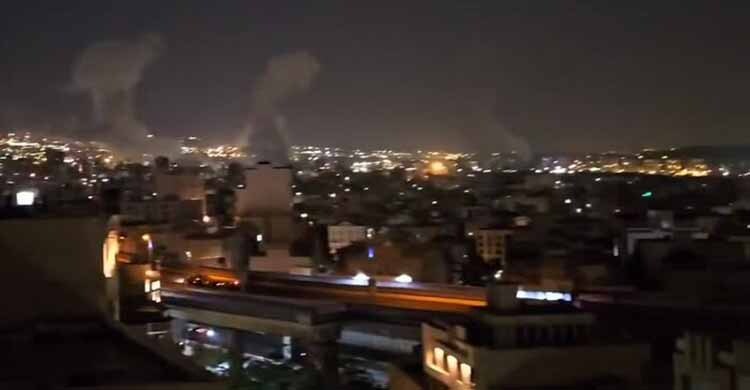
Israel has launched a series of airstrikes across Iran, targeting military and nuclear sites in what Israeli officials describe as a "precise and integrated preemptive strike" aimed at disrupting Iran’s nuclear and ballistic missile programmes.The attacks, which began early Friday, have struck at least six locations, including the capital Tehran, Natanz, Tabriz, Isfahan, Arak, and Kermanshah, according to Iranian and international reports.
Waves of attacks and targets
Iranian state media reported at least two waves of strikes, with unconfirmed reports suggesting a third wave targeting radars and air defenses is underway, as cited by The New York Times. The strikes hit military bases around Tehran, including the Parchin military complex, as well as residential areas housing military officials. The Natanz nuclear facility, Iran’s main uranium enrichment site, was confirmed as a target by Rafael Grossi, head of the International Atomic Energy Agency (IAEA), which is monitoring radiation levels in the area.
Iran’s Tasnim news agency reported the deaths of two prominent nuclear scientists, Mohammad Mehdi Tehranchi and Fereydoun Abbasi, alongside several commanders of the Islamic Revolutionary Guard Corps (IRGC), including its commander-in-chief, Hossein Salami. Ali Shamkhani, a senior adviser to Iran’s Supreme Leader Ayatollah Ali Khamenei, was critically injured, according to Nour News. Iranian media also reported civilian casualties, including women and children, in residential areas of Tehran, such as the northern neighborhood of Aghdasieh and Mahallati in the northeast.
Iranian response and retaliation threats
Ayatollah Khamenei condemned the attacks, vowing that Israel would face “severe punishment” and a “bitter and painful fate” for striking residential and military targets. Iranian military spokesperson Abolfazl Shekarchi echoed this, promising that Israel would pay a “heavy price.” Iran has closed its airspace and suspended flights at Imam Khomeini International Airport, though the facility itself was reportedly unaffected.
Netanyahu finds it ‘decisive moment’
Israeli Prime Minister Benjamin described the operation, dubbed “Rising Lion” or “Nation of Lions,” as a “decisive moment” aimed at dismantling Iran’s nuclear programme, ballistic missile capabilities, and command-and-control systems.
Israeli military chief Eyal Zamir announced the mobilization of tens of thousands of soldiers, warning that Iran’s response could exact a heavy toll. Israel has banned gatherings, closed schools, and restricted workplaces, signaling heightened alert for potential retaliation.
Israeli media reported that the Mossad conducted sabotage operations and targeted assassinations alongside the airstrikes, aiming to disrupt Iran’s military and nuclear leadership. Senior Al Jazeera correspondent Ali Hashem described the operation as a multilayered “octopus strike strategy” targeting both infrastructure and key personnel.
Trump to convene a National Security Council meeting
President Trump is set to convene a National Security Council meeting on Friday at 11am local time (15:00 GMT) to address the crisis, though US Secretary of State Marco Rubio emphasized that the U.S. was not involved in the strikes and warned Iran against targeting American interests.
US involvement
While Israel’s UN ambassador, Danny Danon, stated that the decision to strike was independent, reports suggest the U.S. was informed in advance. The U.S. had recently evacuated nonessential personnel from its embassy in Baghdad, hinting at prior knowledge of a potential attack. President Trump, who has advocated for a diplomatic solution to prevent Iran from acquiring nuclear weapons, is reportedly monitoring the situation closely.
International reactions
The strikes have drawn sharp criticism and concern globally. US Senator Chris Murphy called the attacks a “disaster” that risks spiralling into a broader regional conflict, accusing Israel of undermining diplomatic efforts by the Trump administration. Senator Jack Reed labelled the strikes a “reckless escalation,” urging de-escalation.
Ongoing developments
The situation remains fluid, with Iran’s air defences on high alert and reports of explosions continuing in Tehran. Footage verified by Al Jazeera’s Sanad agency showed significant destruction in residential areas, while Press TV released images of fire and smoke at the Natanz facility. Israel’s military confirmed the use of dozens of jets in the operation, which it claims was based on high-quality intelligence.
As both nations brace for potential escalation, the international community is calling for restraint to prevent a broader conflict that could destabilize the region further.

